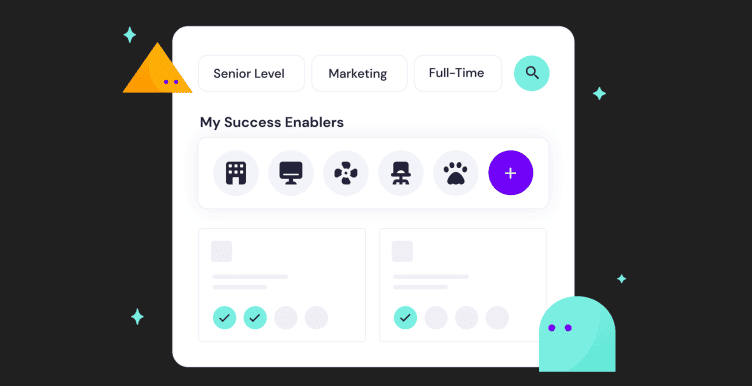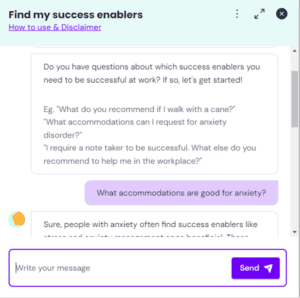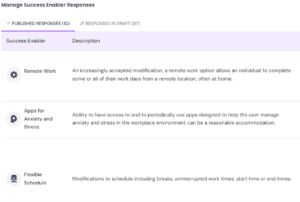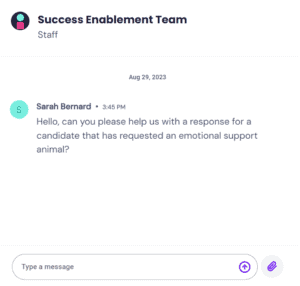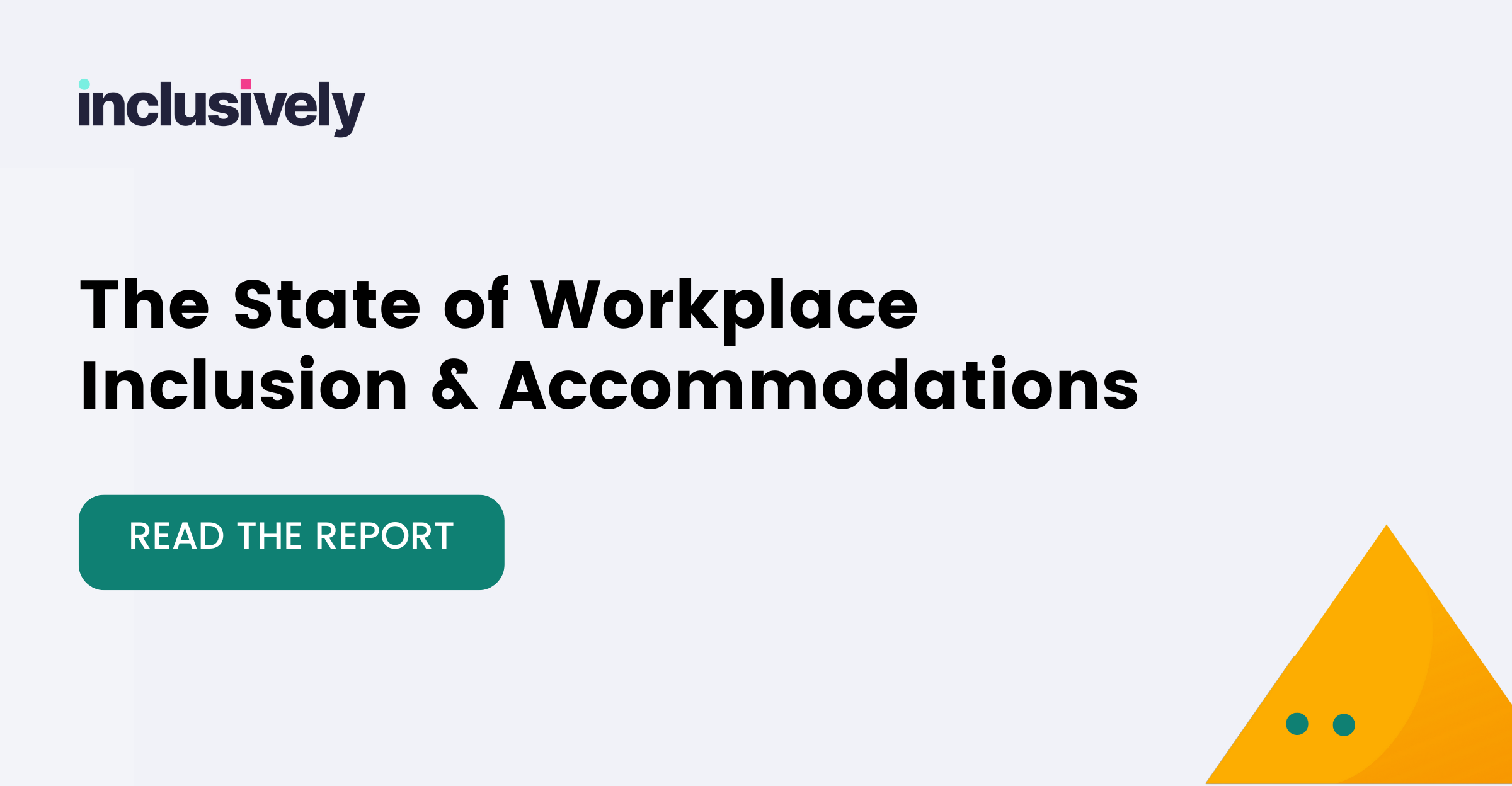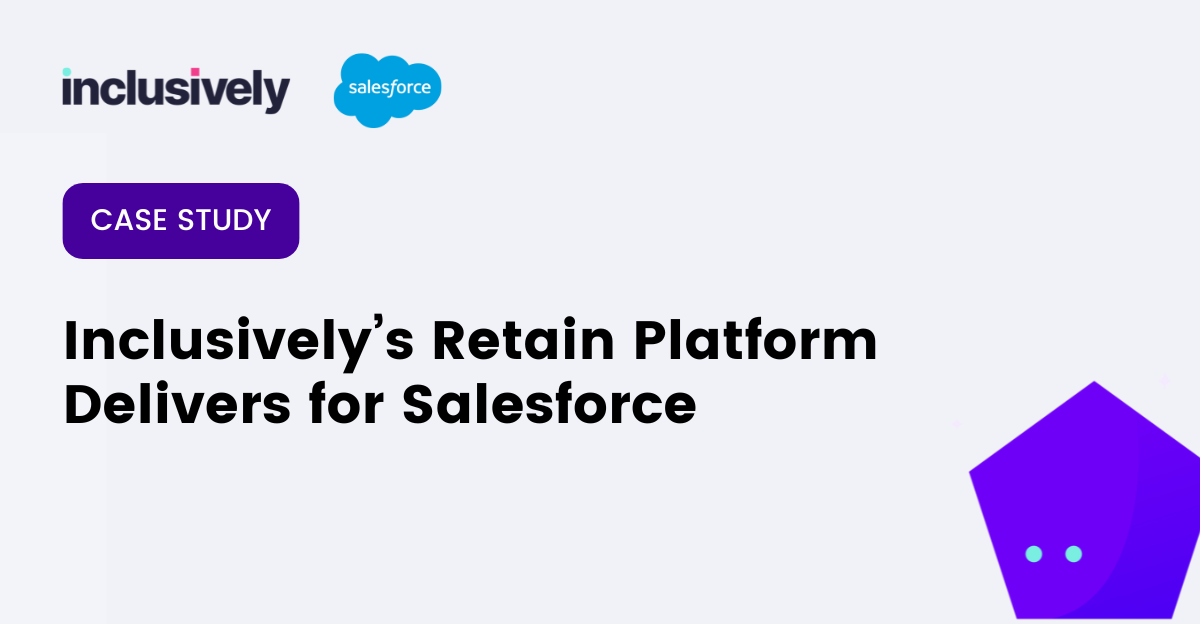We’re witnessing a major shift in the HR landscape, with two significant scenarios unfolding.
First, people have gotten used to how they work at home — their cadences, breaks, and ability to be “heads-down” on projects that take lots of cognitive attention. In some cases, working from made childcare easier, or managing their own emotional needs more sustainable.
Although these workers are often open to returning to the office and understand the benefits of doing so, they want to bring these things with them. They became better at their jobs and more fulfilled as a result of them, and they’re not ready to give them up.
This ties into the second major trend. HR teams are fielding way more accommodation requests from employees, many having to do with these Success Enablers. A lot of the requests are centered around mental and cognitive health. To overworked accommodations and accessibility teams that don’t have a framework for dealing with these types of requests, it feels like a wave crashing all at once.
These are some of their most commonly asked questions:
- What’s our policy on flexible schedules?
- How do we scale our policies so that all employees can benefit?
- How do we support employees’ mental health requests?
- What are others in our industry doing?
- How do we provide transparency and track what’s making people more productive?
Companies that thought they could press a button and return to how things were before the pandemic are realizing that that’s not an option. Employees coming back to work are doing so with a whole new set of needs and expectations.
This brings us to a big change in how HR teams are operating.
In the past, these teams were like goalies, waiting and reacting to requests before jumping into action. And now, they’re fielding even more requests from employees regarding the way they work best. HR teams need to be more like detectives, understanding what these new needs are and how to respond to them proactively.
We’re talking about a broad range of employees here, some of whom may not even identify as having a disability, but who need these accommodations to feel satisfied and most productive.
Instead of just reacting to a doctor’s note, these teams now need to think about the social aspects of work and people’s changing lives. It’s a big task, but it’s crucial if we want our workplaces to be truly inclusive, supportive, and productive.
So, the big question is, what do these companies do when faced with an avalanche of accommodation requests they’re not quite prepared to handle?
Here’s one strategy for overburdened HR teams:
- List the top 10 most-requested accommodations at your company.
- Build company-wide responses around them.
- Post these policies in a place that everyone has access to. Be transparent.
- Allow your employees to share their feedback on these policies.
- Build down the funnel: As you get more requests for different accommodations and success enablers, build out policies for the requests with the highest volume.
Then track the data; not just on volume, but on employee satisfaction.
Our philosophy is straightforward here: roll out an open, transparent process to all employees.
Most importantly, continuously learn from your employees’ feedback and analytics. This way, companies can ensure their company-wide responses are constantly evolving based on real-time employee data.
Our new Retain platform provides one way to do all the above. Employees can use the platform to learn what accommodations or Success Enablers are best for anxiety (as one example). They can save them to their profile, and share what accommodations they need with their employer.
As requests come in, HR can field them. They can also see how satisfied employees are with the company-wide responses.
HR teams can see all the accommodation responses they’ve published as a company, and how many employees have requested a given accommodation. Their satisfaction with each policy is tracked.
If an HR team has a question about a given policy (or needs help creating one) they can come over to the success enablement help desk and ask for help. A sample question might be: “We don’t have a policy for emotional support animals, can you help us create one?” Or, “What’s a sample policy for emotional support animals in our given industry?”
This gives HR teams the ability to update their company responses and track the data. They can build out frameworks for their most-requested Success Enablers.
We want overburdened HR teams to reach out to us.
Many large companies are struggling, and tell us they need a framework to respond to these requests promptly and effectively. More than that, they’re realizing they need to be more proactive about these accommodations and be transparent about them to all their employees.
If a company is stumped by a specific accommodation request, they can use Retain to see how similar companies are handling it. This not only takes the heavy-lifting of research off their shoulders but also ensures they’re following the most inclusive accommodation practices.
Our main advice to companies is to roll out this transparent process to all of your employees. Empower your employees to learn about accommodations before they are even requesting them.
Gather employee feedback, track the data, and continuously learn from your employees’ satisfaction.
By doing so, you help ensure that your employees are set up for the best success!
